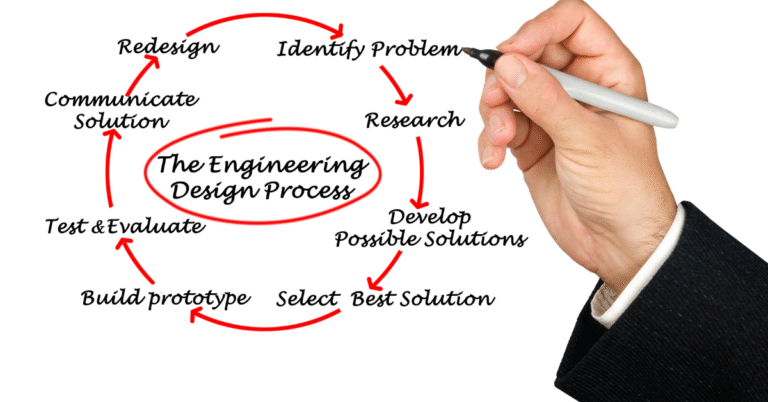Process Design Engineering Course after Chemical Engineering
Get skilled, certified, and job-ready with a practical process design engineering course for chemical engineers.
Process design engineering is a vital field in industries like chemical, oil and gas, power, and other engineering sectors. A process design engineer plays a key role in designing the entire plant layout and flow. He prepares the input documents that go to all other departments—mechanical, electrical, instrumentation, and civil. These documents guide the full project execution, so the process department must be highly skilled and accurate.
To build these skills, many engineers join a process design engineering course. This course teaches how to design chemical plants, create technical drawings, and use simulation software like Aspen HYSYS, ChemCAD, and HTRI. It helps freshers and working professionals become confident and job-ready. A good course also covers safety, utility engineering, and project documentation—making you a complete process design engineer.
Table of Contents
How to Become Process Design Engineer after Chemical Engineering?
If you are a chemical engineering graduate and want a stable, high-growth career, then becoming a process design engineer is a smart choice. This job offers:
- Good salary
- 5-day work week
- General shift timing
- Long-term career growth
Your college education gives you the foundation—but the industry demands practical skills. If your college offered industry-based training through expert sessions or internships, you might be ready for direct entry. However, most colleges don’t provide this exposure, which is why many engineers choose certification courses in Process Design Engineering.
What You Learn in a Process Design Engineering Course?
A good process design engineering course teaches you how to design chemical plants and equipment. You learn how to convert process ideas into working systems. Here are the 11 core skills you’ll gain:
- ✅ Preparing the design basis of a plant
- ✅ Developing PFD (Process Flow Diagram) and P&ID (Piping and Instrumentation Diagram)
- ✅ Creating equipment datasheets
- ✅ Designing process equipment like:
- Heat Exchangers
- Pumps
- Distillation Columns
- Reactors
- Towers
- Control Valves
- Pressure Safety Valves
- Vessels and more
- ✅ Equipment simulation using tools like HTRI, Aspen EDR
- ✅ Process simulation using software like Aspen HYSYS, Aspen Plus, ChemCAD, UniSim, Pro II
- ✅ Utility Engineering
- ✅ Safety Engineering
- ✅ Line Sizing
- ✅ HAZOP Study
- ✅ Understanding project documentation and engineering standards
These skills are needed in industries like oil & gas, chemical, pharma, and energy.

Career Growth After Completing a Process Design Engineering Course
Once you complete a Process Design Engineering Course in Gujarat, many career opportunities will open for you. You can start as a Process Design Engineer, and with experience, grow into senior roles such as:
- Project Engineer
- Senior Project Engineer
- Principal Engineer
- Project Manager
- Project Head
These roles come with better salary, more responsibility, and leadership opportunities. You’ll be involved in planning, designing, and managing large engineering projects in industries like oil & gas, chemical, power, and manufacturing. Companies respect skilled process engineers because they create the base documents that guide all departments. This makes your role important and valuable. With time, you can lead entire projects and teams, and even move into strategic or consultancy positions. It’s a stable and rewarding career path for chemical engineers who want long-term growth.
Who Can Do a Process Design Engineering Course?
A Process Design Engineering Course is specially designed for candidates from a chemical engineering background, as they already study process flow, thermodynamics, and plant operations during their degree. However, this course is also suitable for professionals from other engineering fields who want to shift into design roles or upgrade their skills.
The following candidates can benefit from this course:
- ✅ Chemical Engineers – Highly recommended, as the course matches their core subjects
- ✅ Production Engineers – To understand process flow and improve plant efficiency
- ✅ Maintenance Engineers – To learn design logic and equipment specifications
- ✅ Quality and Control Engineers – To understand process standards and documentation
- ✅ Erection and Commissioning Engineers – To gain design knowledge for better execution
- ✅ Mechanical Engineers – Especially those working in plant operations or equipment design
- ✅ Civil Engineers – To understand layout planning and structural coordination
- ✅ Electrical Engineers – To align electrical systems with process requirements
Even if you’re from a non-chemical background, this course helps you understand how a plant is designed, how equipment is selected, and how different departments work together. It builds strong technical knowledge and opens doors to design, project, and consultancy roles.
Best Institute for Process Design Engineering Course in Vadodara
If you’re looking for a practical, skill-based course, I highly recommend Petromech Baroda LLP. It is a trusted engineering institute located in Vadodara, known for its hands-on training, expert instructors, and strong placement support. The institute focuses on real industry needs and teaches students how to work confidently in process design roles.
Across India, many engineering institutes are located in major cities like Mumbai, Pune, Delhi, Chennai, Hyderabad, and Bangalore. Vadodara is also a well-known hub for chemical and process industries, making it a smart choice for learning process design. Among these cities, Petromech Baroda LLP stands out as one of the best institutes for Process Design Engineering Course in India.
What makes Petromech different is its focus on practical learning, and personalized guidance from experienced professionals. Whether you’re a fresher or a working engineer, Petromech helps you build the right skills to succeed in design, project, and consultancy roles.
To know more or enroll, visit Petromech Baroda LLP.
Note: Petromech does not provide software training in tools like Aspen HYSYS, HTRI, etc.

